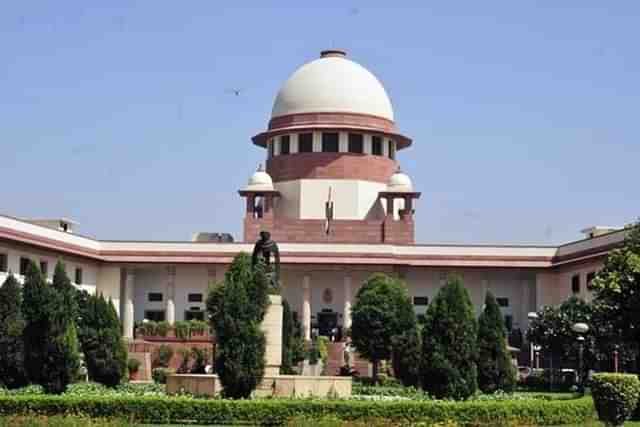By The Sampadak Express
The Supreme Court’s recent decision to stay the arrest of social media activist Wajahat Khan in multiple FIRs across states has sparked a fresh debate on the consistency and impartiality of India’s top court. The move has drawn stark comparisons with the earlier treatment of law student and influencer Sharmistha Panoli, who faced arrest without any such protection despite both being accused of similar offences.
Two Cases, One Offence Two Outcomes?Both Khan and Panoli were booked under charges of hurting religious sentiments through social media posts. Yet, their legal journeys have unfolded very differently.
On June 23, the Supreme Court stayed Khan’s arrest in all FIRs outside West Bengal, where he is already in judicial custody. The Court also barred coercive action in any future FIRs linked to the same allegations a sweeping relief rarely seen in such cases. The bench, led by Justices K.V. Viswanathan and N. Kotiswar Singh, also issued notices to the Centre and four states Assam, Maharashtra, Delhi, and Haryana seeking responses by July 14.
Khan’s lawyer admitted in court that the posts were “offensive,” but said the tweets had been deleted and an apology issued. While Justice Viswanathan sharply criticised the nature of the posts, calling them “hate-mongering” and quoting a Tamil proverb on the wounds caused by speech, the bench still extended broad legal protection.
Sharmistha Panoli: A Starkly Different Response
Just weeks earlier, a near-identical case involving Sharmistha Panoli received no such intervention. Panoli was arrested in a cross-state operation by Kolkata Police, who tracked her down in Gurugram, Haryana over a single complaint filed by Khan himself, alleging her post after Operation Sindoor had hurt Hindu sentiments.
Unlike Khan, Panoli wasn’t facing multiple FIRs. Yet, no pre-arrest protection was granted. There was no urgent listing, no Supreme Court hearing, and no judicial relief until the Calcutta High Court later intervened to grant interim bail, following massive public outrage.
Legal Irony and Public Backlash
What began as a complaint from Khan turned into a broader discussion about legal parity and institutional neutrality. After Panoli’s arrest, users resurfaced Khan’s own controversial posts many targeting Hindu symbols and festivals. FIRs against him soon followed from Assam, Delhi, Maharashtra, and Haryana, and he was eventually arrested in Kolkata.
Now on the receiving end of legal heat, Khan approached the Supreme Court for consolidation of FIRs and protection from further arrests and succeeded swiftly.
Judicial Double Standards?
The glaring contrast in treatment has raised questions:
1. Why was the Supreme Court quick to grant Khan relief, but not Panoli?
2. Why did it stay future FIRs in one case and stay silent in the other?
Civil liberties advocates argue that the cases highlight a troubling inconsistency in the judiciary’s response to free speech and hate speech cases, depending on who the accused is.
As the case returns to court in July, the spotlight will remain on the judiciary and its role in upholding equal treatment under law, a cornerstone of the Constitution.



leave a reply